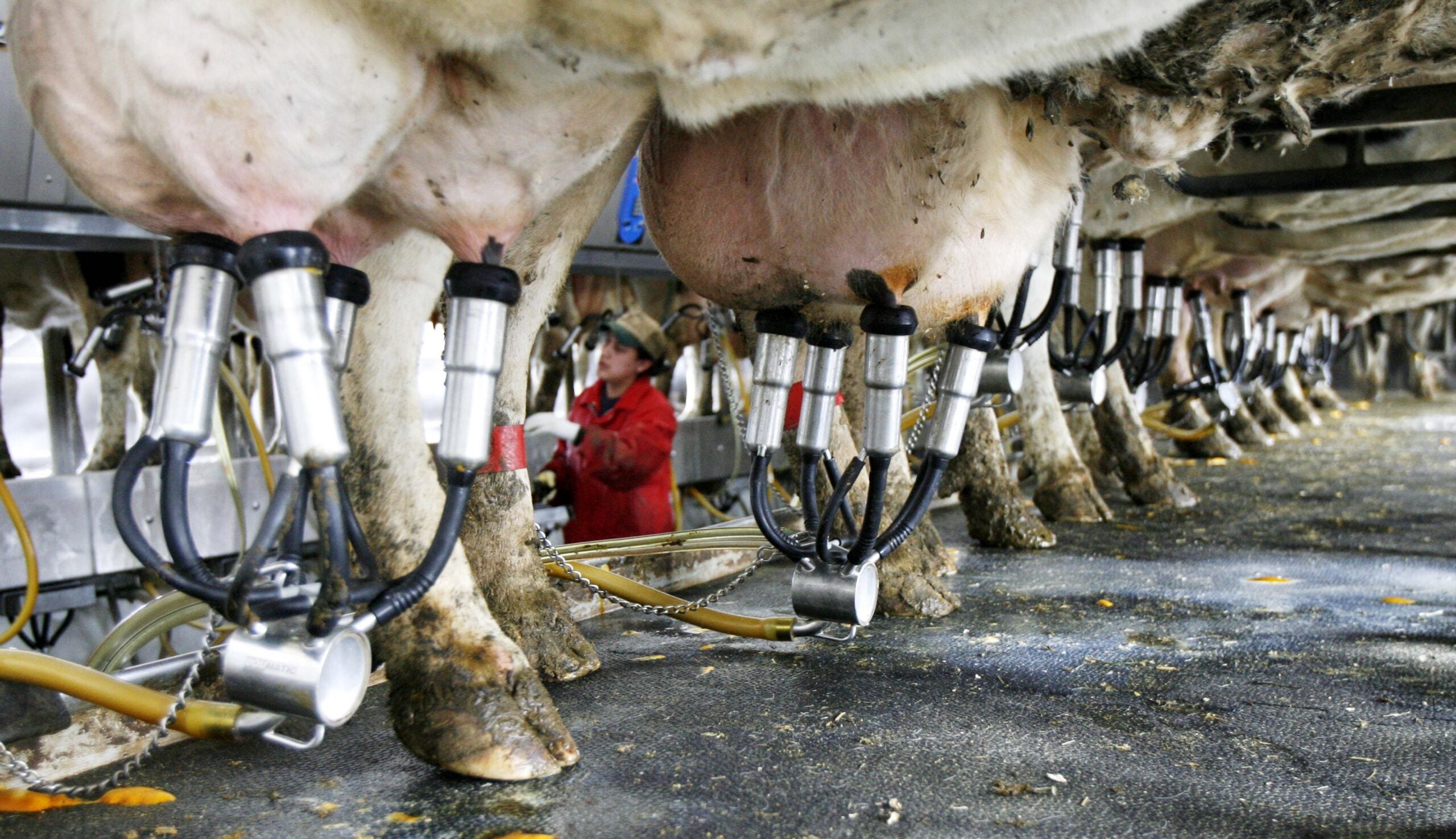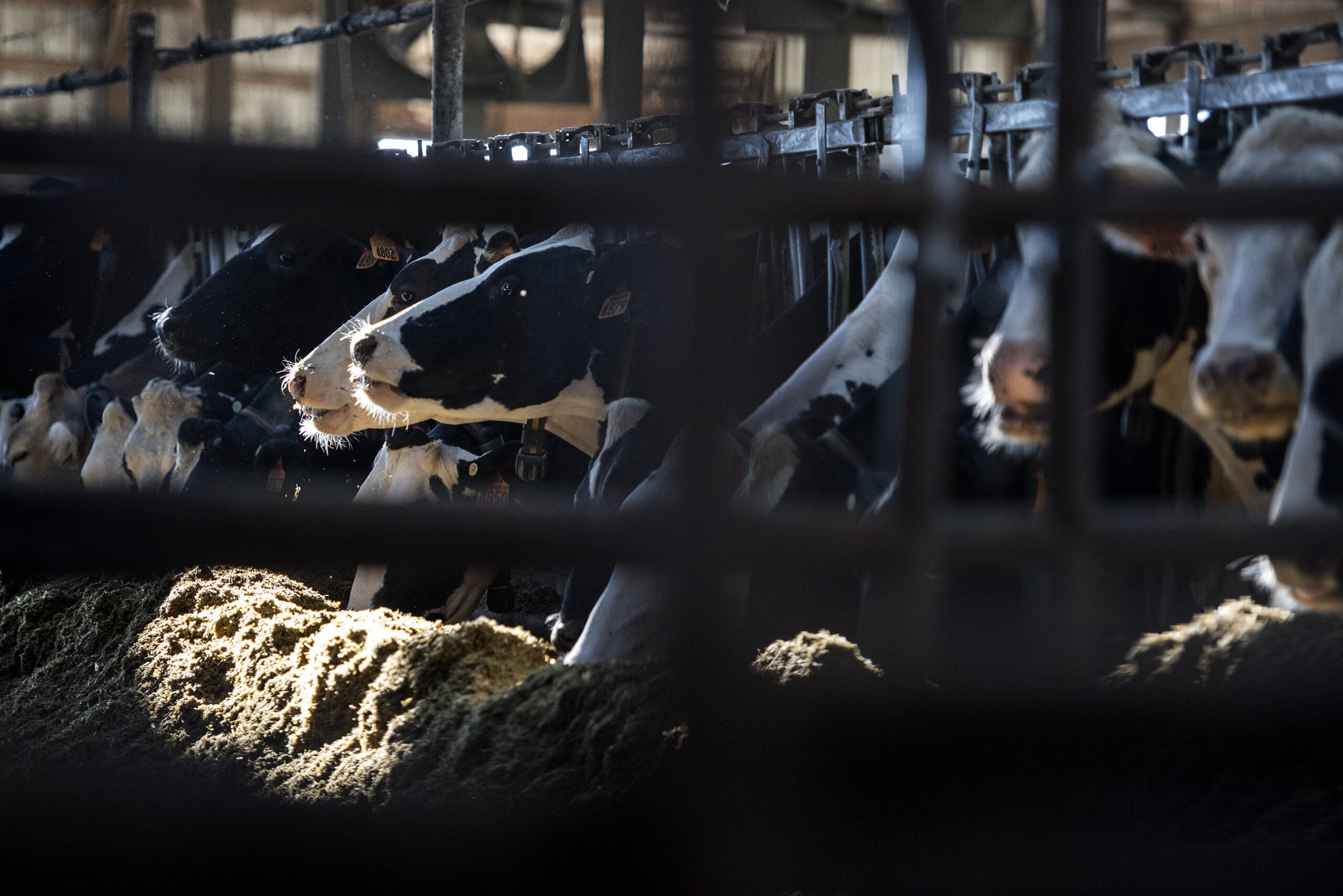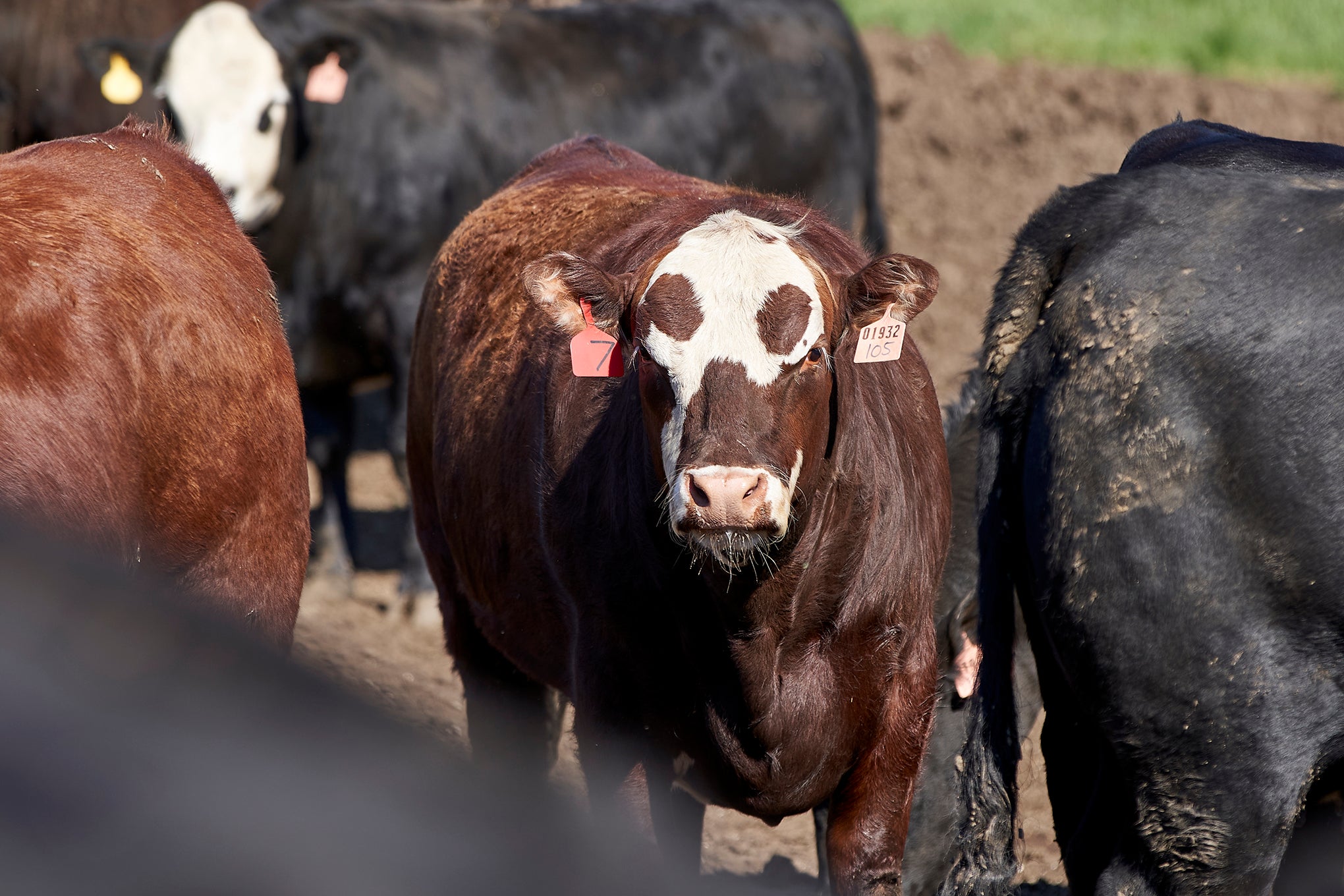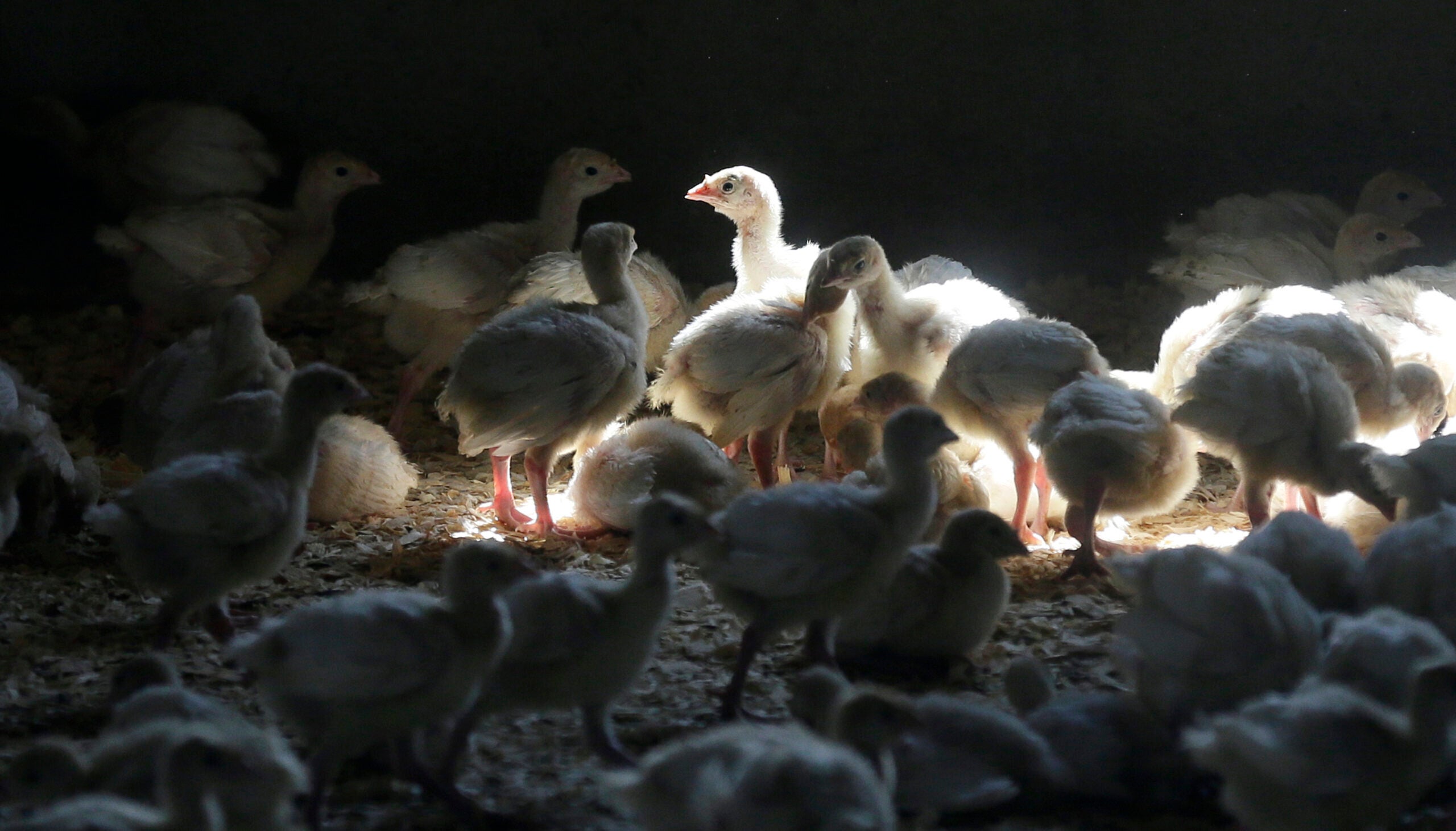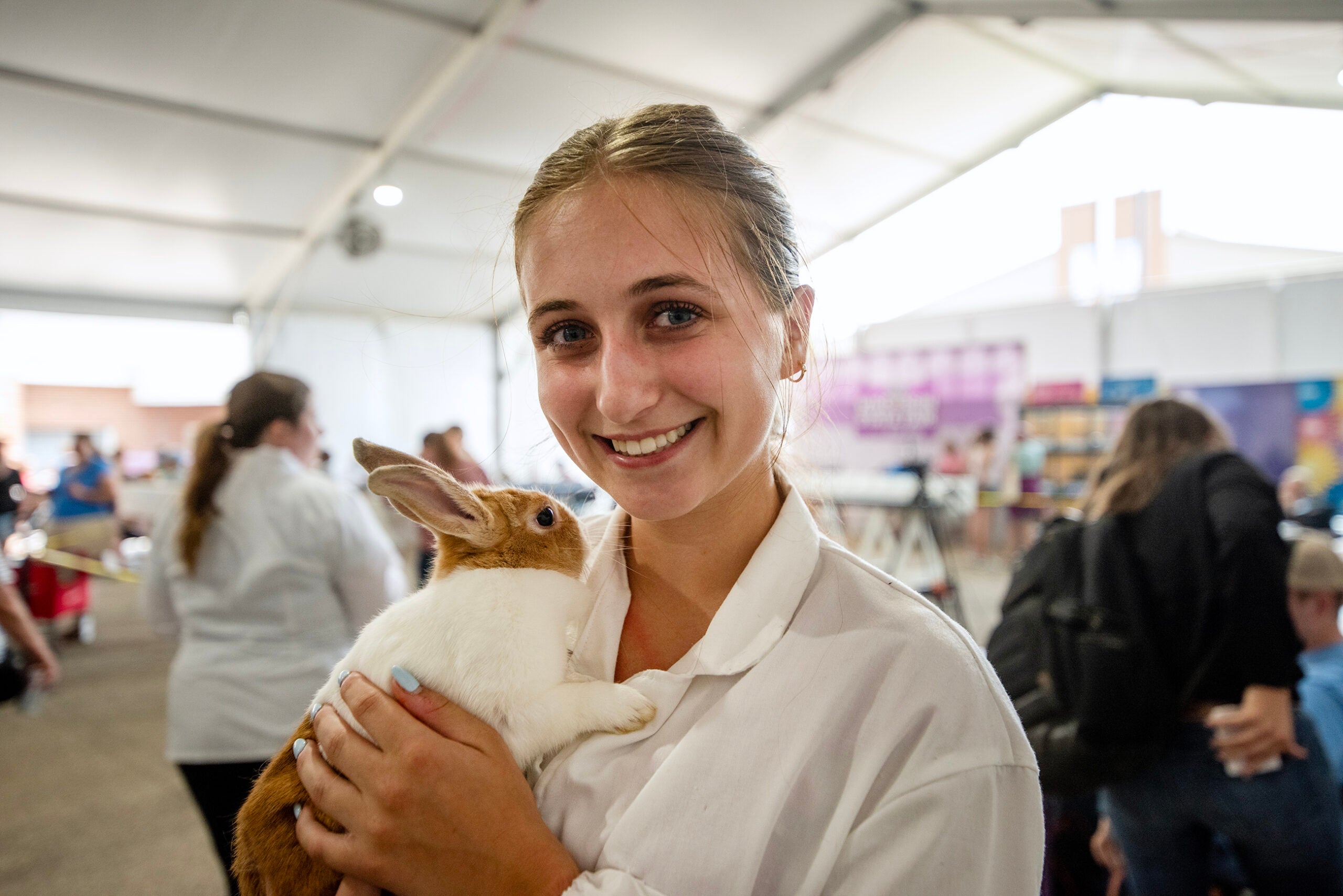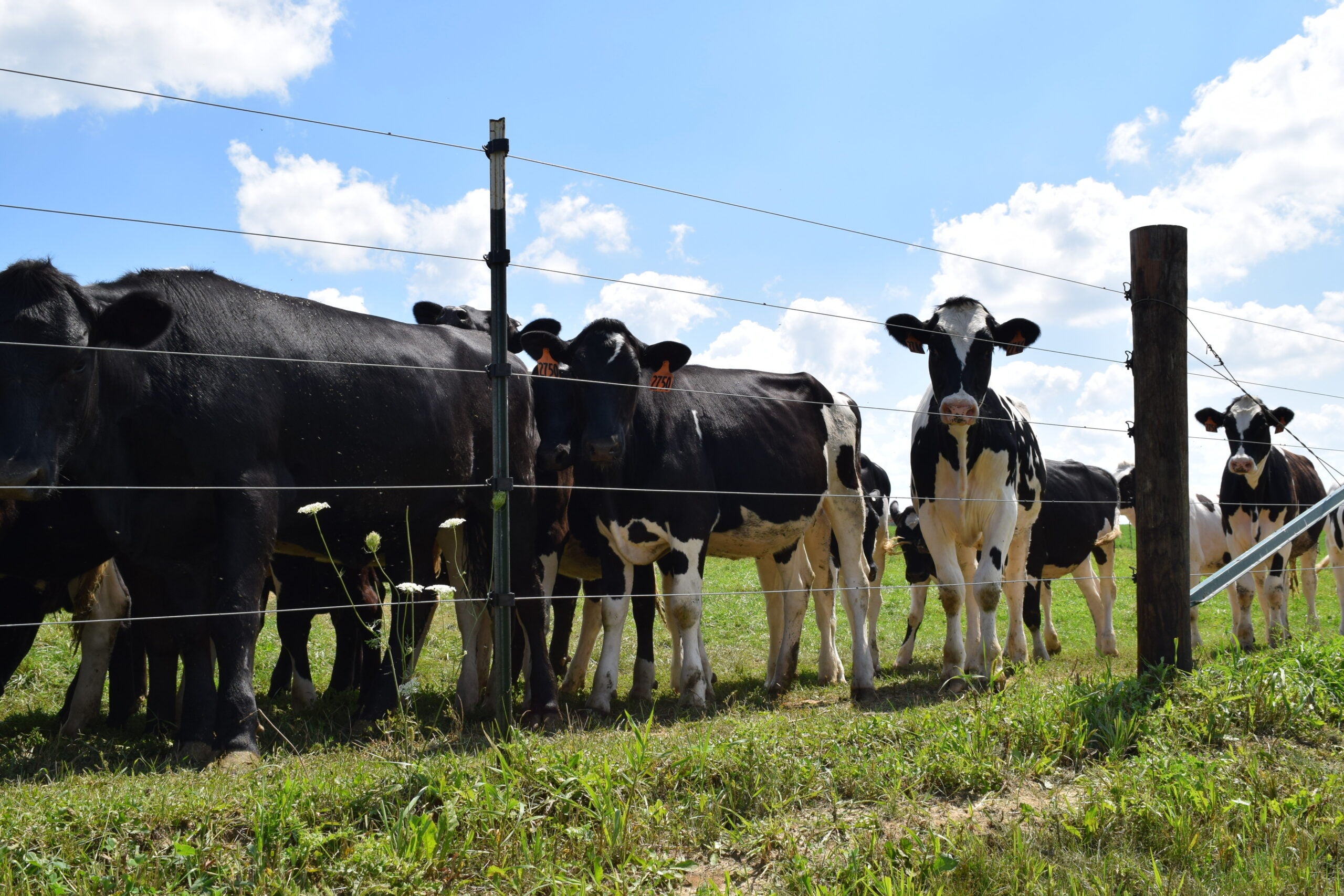Wisconsin agriculture officials are warning livestock owners to protect animals from extreme heat this week.
The National Weather Service issued a heat advisory for much of southern and western Wisconsin starting Thursday. Heat index values are expected to reach over 100 degrees in some areas.
Leeann Duwe, spokeswoman for the state Department of Agriculture, Trade and Consumer Protection, said dairy producers and other livestock owners need to be proactive to prevent heat stress.
News with a little more humanity
WPR’s “Wisconsin Today” newsletter keeps you connected to the state you love without feeling overwhelmed. No paywall. No agenda. No corporate filter.
“Making sure that livestock have plenty of water and shade and if you do witness any signs of heat stroke, anything out of the ordinary: restlessness, stumbling, increased heart rate, make sure you call your veterinarian right away,” Duwe said.
Duwe said young animals and those already dealing with illness or injury are most susceptible to extreme temperatures.
University of Wisconsin-Extension veterinarian Larry Baumann said livestock can suffer from dehydration or heat stroke just like humans.
“The animal is sluggish, is slow, is showing perhaps some mild weakness and depression and not acting normally,” Baumann said.
He said horses are one of the only livestock animals that share humans’ ability to cool down by sweating.
“Other animals, such as cattle and hogs, they have some sweat glands but the sweat glands are not numerous enough to really effectively cool their bodies down,” Baumann said.
Baumann said cattle and hogs rely on water and shade to keep cool. And it’s not uncommon to see livestock deaths after period of high heat indexes.
He said dairy producers can also expect to see a roughly 25 percent decline in a cow’s daily milk production during extreme heat.
“When the dairy cow is exposed to these high heat indexes, her eating and feed consumption drops quite a bit,” Baumann said. “The more they eat, the more internal heat is produced and so that’s one of the ways nature kind of helps these animals from generating all this internal heat.”
Duwe said producers should avoid transporting livestock in the heat to keep from putting more stress on the animals. And she said pet owners should take similar measures.
“Leave your pet at home. Don’t run errands with your pet. Never leave your pet in a vehicle when it gets this hot, it can become life threatening,” Duwe said.
But Baumann said it’s likely some livestock owners will be traveling to several county fairs happening this week. He said county fair leadership generally work with a local veterinarian to decide if conditions are safe.
“If it’s extreme, then the (fair) superintendent and the local veterinarian for that fair may actually make a decision to send animals home,” Baumann said. “Many of these county fair buildings don’t have open ventilation or they don’t have sprinkler systems or they don’t have a means to adequately cool these animals.”
Wisconsin Public Radio, © Copyright 2026, Board of Regents of the University of Wisconsin System and Wisconsin Educational Communications Board.
